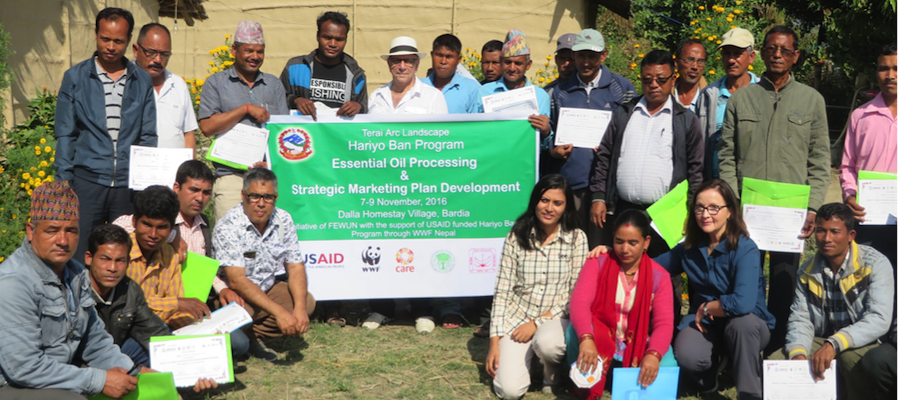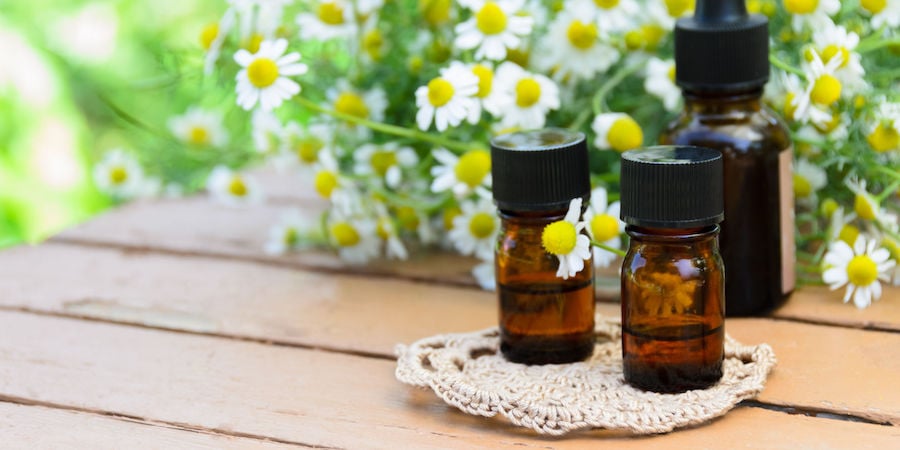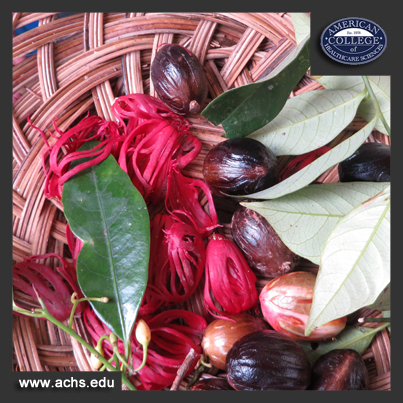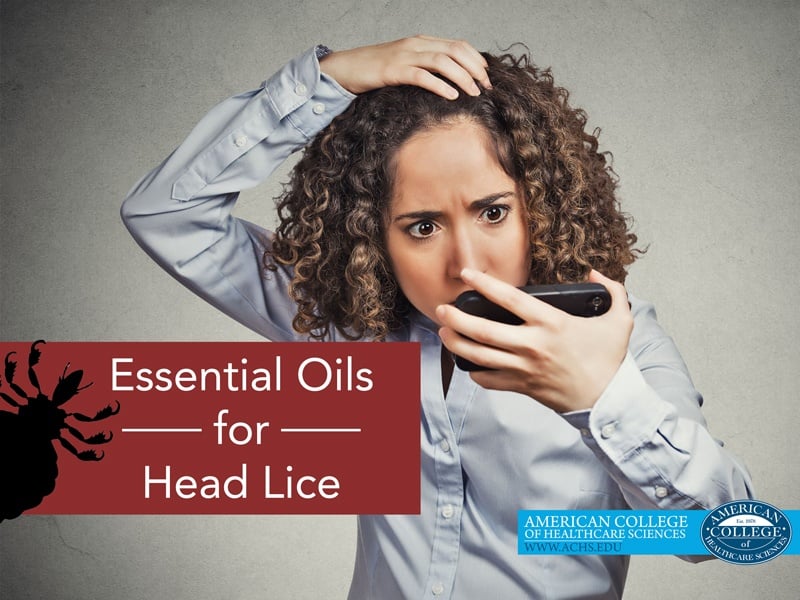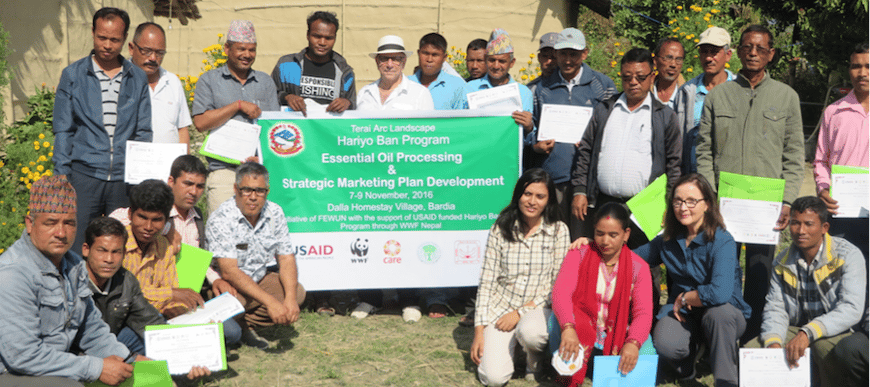
Empowering Farmers to Develop Organic and Fair Trade Practices in Nepal’s Essential Oil Industry
Last fall, I traveled from my home in Portland, Oregon to the southern lowland area of Nepal known as the Terai. I went as a volunteer with Winrock International through the USAID-funded Farmer-to-Farmer Program. My Nepalese hosts were the Forest Environment Workers Union Nepal, also known as FEWUN. FEWUN are focused on ensuring sustainable, safe, and environmentally friendly opportunities for all Nepalese forest workers.
I was incredibly humbled to travel to this beautiful region, rich in culture and welcoming warmth. My volunteer objectives were to help teach and train farmers and forest workers efficient and improved essential oil processing, how to identify quality in essential oils, and how to strategically market the oils to the aromatherapy sector worldwide.
I also focused on FEWUN’s mission to achieve workers’ rights with the creation of meaningful jobs that sustainably conserve the bio-diversity of the managed forests and rich Nepalese natural resources. Identifying employment and entrepreneurial opportunities for women and the younger generation—Nepalese millennials—in profitable medicinal and aromatic oil processing enterprises was also a focus.
Farmers, both men and women, of essential oil crops, as well as distillers, were eager to learn about the benefits of certified organic, fair trade, quality materials, and effective marketing strategies. In a region with deep economic, agricultural, and environmental challenges, my adult students were eager to learn and implement changes that could help the environment and their livelihoods to flourish.
Even though I was the teacher, I learned an incredible amount simply by visiting and connecting with the Nepalese people. And as an aromatherapy and raw materials expert, I was glad to share my knowledge about organic processes and healthy work environments.
After spending a day in Kathmandu acclimating and meeting with FEWUN and the Winrock team, we set out for the far southeastern Nepal-India border region known as Bardiya (or Bardia). We took a quick, small plane ride with Buddha Air. A window seat provided great views across the mighty snow-covered Himalayan range before putting us down in a bustling, hot, dusty city called Nepalgunj.
The trusty Winrock Indian Mahindra SUV and wonderful driver Krishna picked us up from the airport. A quick stop for a welcome cup of hot, sweet chai and a sandwich filled us up before we set off on a two-hour road trip to what would be our home for the next week, Bardia Tiger Resort.
The journey was through forested and flat land with many dried-out river beds. I quickly learned to identify the Sal trees (Shorea robusta) that are very common in the area. I later learned the Sal tree has many medicinal, cultural, and religious uses and is of great value in this area.
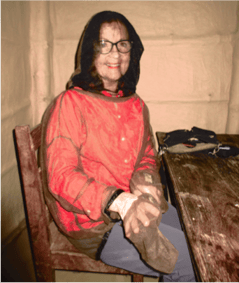 After getting acquainted with my hosts, I settled into life on the edge of a tropical jungle (known as the buffer zone) alive with nighttime mosquitos carrying both dengue fever and malaria. My nightly dinner attire was an REI net jacket and hat, which made me look like a bee keeper lost in the jungle … much to the amusement of my travel companions.
After getting acquainted with my hosts, I settled into life on the edge of a tropical jungle (known as the buffer zone) alive with nighttime mosquitos carrying both dengue fever and malaria. My nightly dinner attire was an REI net jacket and hat, which made me look like a bee keeper lost in the jungle … much to the amusement of my travel companions.
The teaching classroom was a small mud hut with filtered light and a hard-packed clay floor. The temperature inside was pleasant and cool, a welcome relief to the heat outside. My first goal was to identify the challenges the farmers were experiencing with the production of quality essential oils.
They shared with me through an interpreter that the challenges were:
- Seed/plant sourcing
- Soil preparation
- Cultivation
- Harvesting
- Handling after harvest
- Raw material transport to the essential oil still
- Technical issues with distillation
- Storage after distillation
- Access to quality control and analytical tests such as GC/MS
- What plants to grow to diversify essential oil inventory
My primary focus (as it really is one of my greatest passions) was helping these farmers and distillers understand and implement the power of organic processes. By day two, I was lecturing to 30 students on the value and meaning of the USDA organic seal, the National Organic Program standards, and European Union, Japanese, and Chinese organic standards. Every participant was excited and eager to learn more.
It was important to emphasize how organic processes could benefit them as well as our planet and consumers. As many of us know, making sense of organic labeling—especially on a global scale—can get confusing. But it’s essential that we rely on the designated labels to determine if an essential oil is truly organic.
So, the first question we tackled was…
What is organic, and why is it important?
Organic agriculture emphasizes the use of renewable resources and the conservation of soil and water to enhance environmental quality for future generations. In the U.S., the United States Department of Agriculture (USDA) regulates the term. Under USDA regulations, organic raw materials must be produced without using most conventional pesticides, fertilizers made with synthetic ingredients, or sewage sludge; genetically modified organism (GMO) seed is strictly prohibited, as is any post-harvest ionizing radiation.
Before a product can be labeled “organic,” a USDA-accredited certifier inspects the farm to make sure the farmers are following all the regulations needed to meet USDA organic standards.
But that is just in the United States. We also discussed the European Union Organic Standards as well as the Japanese Agricultural Standards (JAS)—which both feature rigorous requirements to qualify for the organic label.
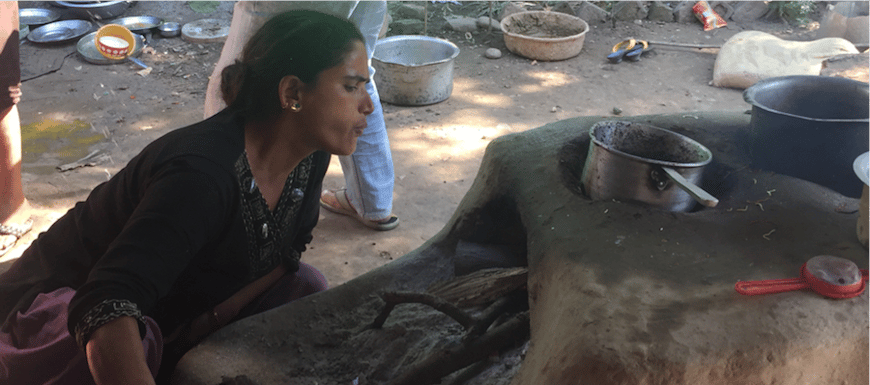
So how does this information benefit the Nepalese farmers and distillers?
From a purely pragmatic perspective, organic products are more valuable in the market than conventionally grown products. By growing organic raw materials for essential oils, these farmers and distillers can charge more for their yield. Plus, being able to label your products as “certified organic” is a valuable marketing tool, and with a growing awareness of organic quality, it is sure to increase revenue.
Then, of course, there are the environmental and health benefits of growing organic. Organic practices help keep harmful pesticides and chemical fertilizers out of the soil, water system, and air. Plus, organic farming encourages biodiversity by maintaining the natural areas within and around organic fields—the lack of chemical inputs encourages safe and flourishing habitats for wildlife, especially those (like bees) that can be hugely beneficially to the crops.
Plus, farmers do not have to expose themselves to extremely harmful chemicals. Conventional pesticides are known carcinogens, and they can have other adverse effects on the eyes, skin, nervous system, and endocrine system.[1]
My students were thrilled to learn about the benefits of organic farming and other ways they could start to improve the quality of the essential oils they were producing, and they are currently on the path to developing these practices. A few of the initial things they plan to do include: establish reliable sources for seeds and plants for propagation; always use the Latin name of the plant; and, if possible, use the chemotype preferred by the aromatherapy market.
Healthier Workers = Healthier Harvests
Next, I wanted to focus on ways the farmers could make their work lives safer and healthier. In the field, I was introduced to the harvesting techniques of a variety of botanicals. In particular, the women who farmed and harvested the lemongrass and citronella grown on leasehold government-owned forest land (as part of a sustained effort to add value to non-timber forest products) complained about snakes, scorpions, and scratches. I saw that many of the women farmers were harvesting in their saris, leaving them vulnerable to the elements. Not only were they risking long-term sun exposure, but they were unprotected from snakes, scorpions, bugs, and sharp edges of the plants.
During the classroom sessions, we covered how in other parts of the world, such as Brazil, women vetiver harvesters wear long-sleeved shirts and protective gloves and even snake guards on their shins. Photos of my time in Brazil with these women helped to illustrate how easy it would be to protect themselves. I promised on my next visit to come with gloves and long-sleeve shirts.
Volunteering is Crucial to Healthy Entrepreneurship and Personal Education
Quality raw materials for essential oils, organic practices, and workplace wellbeing are some of my deepest passions. I truly believe that as these practices spread, our world will be a healthier, happier place.
I was very humbled to be of service to the wonderful people I met in Nepal. The hard work and dedication of the students impressed me—many had travelled very long distances to attend the training.
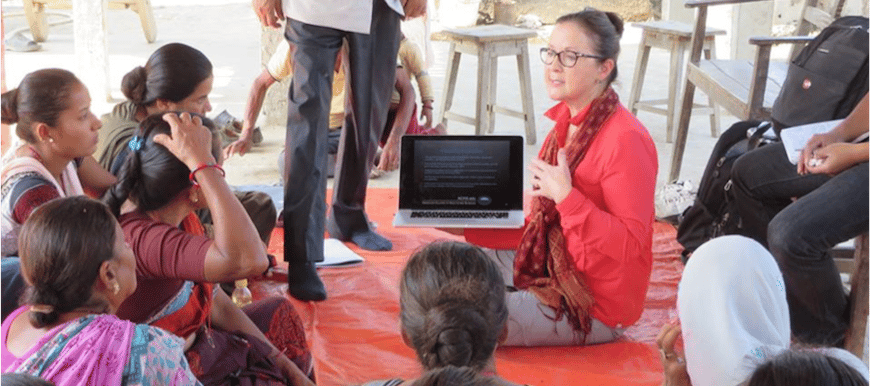
I also learned a lot about the culture and history of Nepal through conversations with my students, interpreters, travel companions, and locals. Even though this was my second visit to Nepal, coming as a Winrock volunteer rather than as an independent traveler gave me the opportunity to talk to people I would never have met in other circumstances. Winrock staff and FEWUN members were wonderful at sharing their knowledge and their support and kindness during the trip was most appreciated.
Lastly, I was filled with love and compassion for the women and all the other farmers who reached out to me with such kindness and smiles and laughter. I feel as if I have made life-long friends and will endeavor to return either as a volunteer on a future project to continue to provide support and ongoing training or under my own capacity. Our goal is to continue to support these wonderful hardworking Nepalese farmers in every way we can.
[1] Environmental Protection Agency. (2014). Pesticides: Health and safety. Retrieved from http://www.epa.gov/pesticides/health/human.htm#healtheffects
Disclosure of Material Connection: I am the President and Founder of American College of Healthcare Sciences, the Institution that publishes this blog. However, all opinions are my own. This blog may contain affiliate links. I am disclosing this in accordance with the Federal Trade Commission’s 16 CFR, Part 255: “Guides Concerning the Use of Endorsements and Testimonials in Advertising.”
This article is for informational purposes only. It is not intended to treat, diagnose, cure, or prevent disease. This article has not been reviewed by the FDA. Always consult with your primary care physician or naturopathic doctor before making any significant changes to your health and wellness routine.

